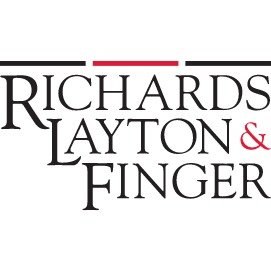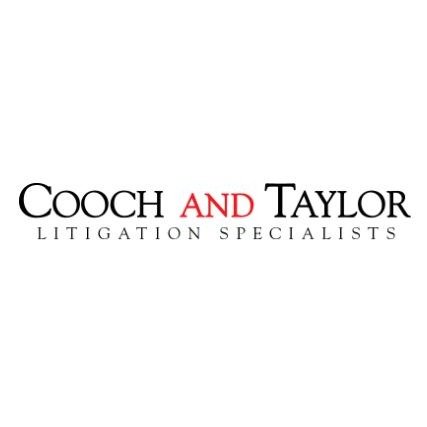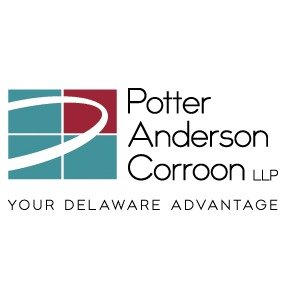Best Tax Increment Financing Lawyers in Delaware
Share your needs with us, get contacted by law firms.
Free. Takes 2 min.
Or refine your search by selecting a city:
List of the best lawyers in Delaware, United States
About Tax Increment Financing Law in Delaware, United States
Tax Increment Financing (TIF) is a public financing method that municipalities in Delaware use to stimulate economic development or redevelopment. TIF allows local governments to finance projects by leveraging the future increase in property tax revenues generated from the rise in property values due to improvements funded by the TIF. In Delaware, TIF is primarily governed by state statutes that permit eligible cities, counties, and development authorities to designate specific areas for redevelopment and use the future incremental tax revenue increases to pay for development costs or infrastructure investments. This tool is commonly used to encourage revitalization in underdeveloped or blighted areas, fund public infrastructure, and attract private investment.
Why You May Need a Lawyer
Legal assistance can be invaluable when dealing with Tax Increment Financing. Here are some common situations where a lawyer may be necessary:
- Understanding and complying with Delaware’s TIF statutes and local ordinances
- Negotiating public-private partnership agreements and ensuring terms protect your interests
- Drafting or reviewing redevelopment proposals and related contractual documents
- Navigating complex financial structuring or bond issuance procedures associated with TIF
- Addressing disputes between stakeholders, such as property owners, developers, and local government entities
- Ensuring proper public notice, hearing, and approval procedures are met for TIF projects
- Managing risk and liability associated with redevelopment or improvement projects
- Evaluating the long-term financial impacts of participating in or opposing a TIF district
Local Laws Overview
Delaware’s approach to Tax Increment Financing is largely shaped by state legislation such as Chapter 17 of Title 22 of the Delaware Code. Key aspects include:
- Eligibility is limited to incorporated municipalities and the City of Wilmington; Kent and Sussex counties have additional authorizations
- Governing bodies must establish a TIF district by ordinance, carefully delineating boundaries and the purposes for redevelopment
- Projects typically focus on infrastructure improvements, utilities, roadway enhancements, public facilities, and environmental remediation
- The increase in assessed property values after the TIF district is created generates the incremental tax revenue used to finance improvements or repay bonds
- Legal procedures require public hearings and notifications to affected stakeholders and the general public
- There are statutory limitations on the types of projects funded and the methods used, such as prohibitions against using TIF to fund purely private improvements
- The Delaware Department of Finance and, in some cases, county governments may provide guidance or oversight on TIF matters
Frequently Asked Questions
What is Tax Increment Financing?
Tax Increment Financing is a mechanism that allows local governments to use future increases in property tax revenues generated in a designated area to finance public improvements or redevelopment projects.
Who can create a TIF district in Delaware?
In Delaware, TIF districts can generally be created by incorporated municipalities and the City of Wilmington. Kent and Sussex counties also have authority under certain circumstances.
What types of projects are funded with TIF in Delaware?
TIF is used to finance public infrastructure, utilities, transportation improvements, public facilities, and environmental clean-up efforts in blighted or underdeveloped areas.
Do TIF districts increase my property taxes?
TIF does not directly increase individual property tax rates. Instead, it reallocates the increased tax revenue resulting from rising property values to pay for improvements within the TIF district.
Are there risks involved with TIF projects?
Yes, risks may include insufficient revenue to cover debt payments, changes in property values, disputes among stakeholders, and potential impacts on funding for other public services. Legal counsel can help assess and manage these risks.
Can TIF funds be used for private development?
Generally, TIF funds in Delaware can only be used for public improvements and not for improvements on purely private property. However, public improvements that benefit private developments may be eligible.
How are TIF bonds issued?
TIF bonds are issued by the local government, typically after a public approval process. These bonds are repaid using the incremental tax revenues generated in the TIF district.
How long does a TIF district last?
The duration varies but typically lasts until the bonds are repaid or the redevelopment goals are met. Timeframes are usually set in the ordinance establishing the district.
How can residents or business owners participate in the TIF process?
Public hearings are required before a TIF district is created. Residents and business owners can express their support or concerns at these hearings and review proposed plans.
Do I need a lawyer to participate in or oppose a TIF project?
While not required, legal guidance is recommended due to the complexity of TIF law and the potential impact on your property or business rights.
Additional Resources
If you need more information on Tax Increment Financing in Delaware, consider consulting the following:
- Delaware Department of Finance - for statutes, guidance, and oversight on tax regulations
- Local city or county economic development offices
- Delaware State Chamber of Commerce - for business and redevelopment resources
- Economic Development Authority offices within specific municipalities
- University of Delaware Institute for Public Administration - for research and community guides
- Local law libraries for access to the Delaware Code and relevant case law
Next Steps
If you are considering involvement in or affected by a TIF project in Delaware, here are practical next steps:
- Gather all available information about the proposed TIF district or project, including public notices and meeting agendas
- Review relevant sections of the Delaware Code, especially Title 22, Chapter 17
- Attend public hearings or meetings where TIF projects are discussed to stay informed and voice your opinions
- Contact local government officials with questions or concerns about TIF projects in your area
- Consult with an attorney who specializes in public finance, municipal law, or land use for tailored legal advice
- Prepare relevant documents and questions before meeting with a lawyer to maximize the value of your consultation
Legal questions about Tax Increment Financing can be complex, but with proper guidance, you can protect your interests and make informed decisions.
Lawzana helps you find the best lawyers and law firms in Delaware through a curated and pre-screened list of qualified legal professionals. Our platform offers rankings and detailed profiles of attorneys and law firms, allowing you to compare based on practice areas, including Tax Increment Financing, experience, and client feedback.
Each profile includes a description of the firm's areas of practice, client reviews, team members and partners, year of establishment, spoken languages, office locations, contact information, social media presence, and any published articles or resources. Most firms on our platform speak English and are experienced in both local and international legal matters.
Get a quote from top-rated law firms in Delaware, United States — quickly, securely, and without unnecessary hassle.
Disclaimer:
The information provided on this page is for general informational purposes only and does not constitute legal advice. While we strive to ensure the accuracy and relevance of the content, legal information may change over time, and interpretations of the law can vary. You should always consult with a qualified legal professional for advice specific to your situation.
We disclaim all liability for actions taken or not taken based on the content of this page. If you believe any information is incorrect or outdated, please contact us, and we will review and update it where appropriate.
Browse tax increment financing law firms by city in Delaware
Refine your search by selecting a city.












